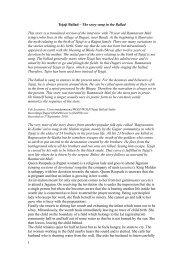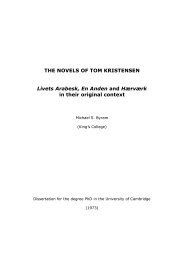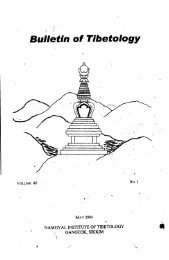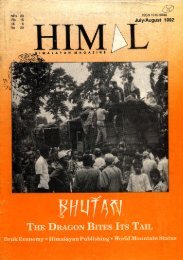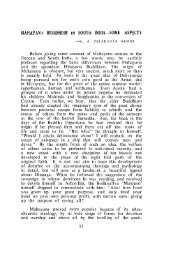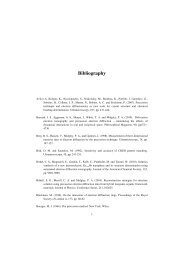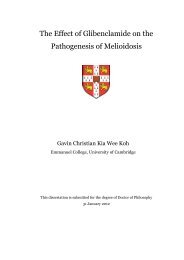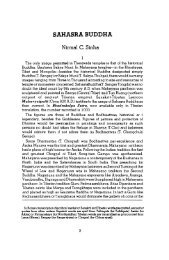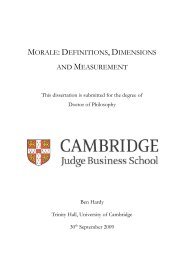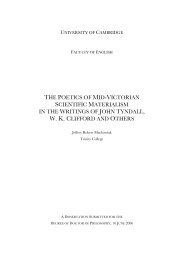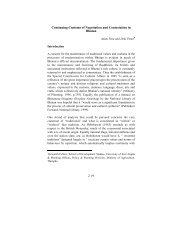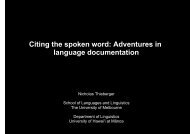The Crusades, the Genoese and the Latin East - DSpace at ...
The Crusades, the Genoese and the Latin East - DSpace at ...
The Crusades, the Genoese and the Latin East - DSpace at ...
Create successful ePaper yourself
Turn your PDF publications into a flip-book with our unique Google optimized e-Paper software.
Many promises were made to <strong>the</strong> <strong>Genoese</strong> in 1200 but <strong>the</strong>ir fulfilment was not<br />
guaranteed. This problem might explain Genoa's reaction in <strong>the</strong> following year. <strong>The</strong> consuls of<br />
<strong>the</strong> year 1201 were some of Genoa's most powerful personnel, including Nicola Doria <strong>and</strong><br />
Guglielmo Embriaco major. Some of <strong>the</strong> activities of <strong>the</strong>se consuls are documented in an unusual<br />
manner in a series of notarial contracts. <strong>The</strong> contracts were written down by <strong>the</strong> notary Guglielmo<br />
di Sori, who is to be considered <strong>the</strong> notary of <strong>the</strong> Embriaco family. "o <strong>The</strong> fact th<strong>at</strong> <strong>the</strong> contracts<br />
were registered by this notary suggests th<strong>at</strong> <strong>the</strong> decision was probably made under <strong>the</strong> influence<br />
of Guglielmo Embriaco major. In <strong>the</strong> same cartulary one may find many commercial contracts<br />
th<strong>at</strong> Guglielmo Embriaco major <strong>and</strong> his nephew Guglielmo Embriacojunior had registered. An<br />
analysis of this unpublished cartulary will <strong>the</strong>refore be interesting in order to underst<strong>and</strong>, on <strong>the</strong><br />
one h<strong>and</strong>, wh<strong>at</strong> was Genoa's position on <strong>the</strong> eve of <strong>the</strong> Fourth Crusade, <strong>and</strong> <strong>the</strong> o<strong>the</strong>r h<strong>and</strong>, wh<strong>at</strong><br />
commercial interests were driving individual merchants into action. Guglielmo Embriaco <strong>the</strong><br />
elder <strong>and</strong> <strong>the</strong> younger registered contracts concerning <strong>the</strong> crusader st<strong>at</strong>es too. <strong>The</strong> Embriaco<br />
family had been in close rel<strong>at</strong>ionship with <strong>the</strong> crusader st<strong>at</strong>es since <strong>the</strong> days of <strong>the</strong> First Crusade.<br />
One contract is particularly interesting because it concerns <strong>the</strong> administr<strong>at</strong>ion of some of Genoa's<br />
property in Acre. 14t Fur<strong>the</strong>rmore, a branch of <strong>the</strong> family had settled permanently in <strong>the</strong> <strong>L<strong>at</strong>in</strong><br />
<strong>East</strong>, but <strong>the</strong>ir story will be discussed separ<strong>at</strong>ely in Chapter Four.<br />
<strong>The</strong> six consuls of <strong>the</strong> year 1201 made a series of unusual notarial contracts, in which<br />
<strong>the</strong>y ordered <strong>the</strong> supply of eight ships for <strong>the</strong> service of <strong>the</strong> commune but for which <strong>the</strong>y paid with<br />
<strong>the</strong>ir priv<strong>at</strong>e capital. When reading <strong>the</strong>se documents, <strong>the</strong> first impression is th<strong>at</strong> <strong>the</strong> consuls were<br />
engaged in priv<strong>at</strong>e business. Partly, this is because <strong>the</strong> contracts were written using formulae<br />
commonly employed by <strong>the</strong> notaries. For example, one of <strong>the</strong> consuls signed a contract as a<br />
personal guarantor, in which he promised to fulfil <strong>the</strong> agreements made by <strong>the</strong> o<strong>the</strong>r consuls. A<br />
formula usually employed in contracts between individuals had been used in this case even<br />
though <strong>the</strong> money pledged was from <strong>the</strong> commune's treasury. 142<br />
It is possible to specul<strong>at</strong>e th<strong>at</strong><br />
<strong>the</strong>re might have also been an element of risk <strong>and</strong> secrecy involved in this enterprise th<strong>at</strong><br />
encouraged <strong>the</strong> consuls to approach this mission as if it was a priv<strong>at</strong>e business. In any case, <strong>the</strong><br />
manner in which <strong>the</strong> consuls h<strong>and</strong>led <strong>the</strong> affairs of <strong>the</strong> commune is not usual <strong>and</strong> thus deserves a<br />
closer look.<br />
On 09 May 1201, a contract was signed between <strong>the</strong> consuls of Genoa <strong>and</strong> a shipowner<br />
named Otto Pulpo. Otto represented in this record three o<strong>the</strong>r shipowners: Lanfranco Roco,<br />
140<br />
see David Abulafia, <strong>The</strong> Two Italies, p. 19.<br />
141 This document has been published. See S<strong>and</strong>ra Origone, `Genova, Costantinopoli e it regno di<br />
Gerusalemme (prima meta sec. XIII)', in Gabriella Airaldi <strong>and</strong> B. Z. Kedar (eds. ) I comuni italiani nel<br />
regno croci<strong>at</strong>o di Gerusalemme (Genoa, 1986), pp. 283-316. Appendix 11/2, pp. 312-314.<br />
14 Guglielmo di Sori, MS 102, p. 193, R4.<br />
51



